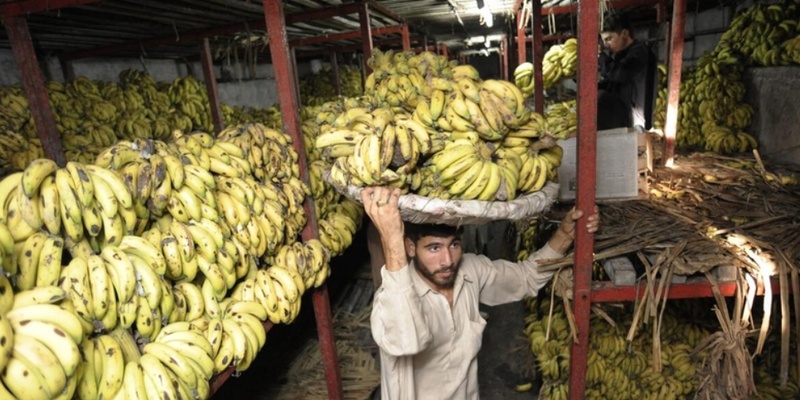Draft standards on banana and fresh taro approved for stakeholder consultation
Posted on Mon, 28 Jul 2025, 11:55

© FAO/Farooq Naeem
Rome, 28 July 2025. Two draft standards in the trade of banana (Musa spp.) and fresh taro (Colocasia esculenta) have been approved for public consultation within countries that are signatories of the International Plant Protection Convention (IPPC) and its regional plant protection organizations. Plant health standards prevent pests from entering and taking a foothold on an importing country, particularly pests that impact fresh fruits and vegetables.
Safeguarding internationally traded crops – staple foods to millions like banana and taro – is essential in ensuring that food supplies remain stable and nutrition gaps are met. Doing so also protects the livelihoods of smallholder farmers and commercial producers who depend on uninterrupted trade of these products and others that may harbour plant pests.
To protect economically and culturally important crops, countries apply globally recognized benchmarks known as the International Standards for Phytosanitary Measures (ISPMs). These standards, particularly ISPM 46 on the safe trade of commodities, details for each given commodity the list of pests it may harbour and outlines the pest control measures and guidelines tailored for the movement of a particular produce.
For the draft standards on bananas and fresh taro, the IPPC is inviting countries to provide comments to improve the drafts by checking the technical information. Countries can also provide additional information on the commodity, and more importantly, add to the list of associated pests and share examples of preventive measures based on the country’s experience.
This expanded information will be particularly useful for the IPPC Technical Panel on Commodity Standards, a group of global experts working diligently to develop these science-based standards. “Once the standard is adopted and comes into force, this will be the starting point for better trade negotiations as it offers the same level playing field for all”, said Adriana Moreira, Deputy Lead of the Standard Setting unit at the IPPC Secretariat and FAO Programme Specialist. The secretariat, through Moreira, works closely with technical panel members in drafting commodity standards.
Asia, Latin America, South America and the Caribbean heavily consume and export bananas and plantains, boasting a production value of USD 37 billion in 2021, according to the Food and Agriculture Organization of the United Nations. Fresh taro’s global production value is at USD 6 billion, with at least 100 million people depending on them for nutrition including in Nigeria, Papua New Guinea and the Philippines

IPPC Technical Panel on Commodity Standards in Auckland, New Zealand, June 2025 © FAO/Adriana Moreira
Earlier in June, the technical panel drafted two other standards for bean seeds (Phaseolus vulgaris) and citrus (Citrus spp) at an in-person workshop held in New Zealand. These draft standards will be reviewed by the IPPC Standards Committee and are set to open for public consultation in 2026.
By far, one commodity standard has been adopted for the international trade of fresh mango fruit (Mangifera indica) as an annex to ISPM 46. Reaching a milestone on next-generation plant health standards, it was adopted in March 2025 at the nineteenth session of the Commission on Phytosanitary Measures, the IPPC’s governing body.

